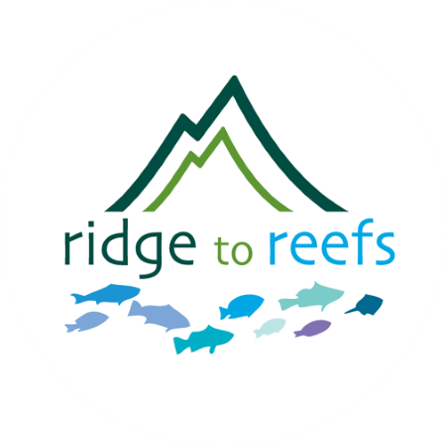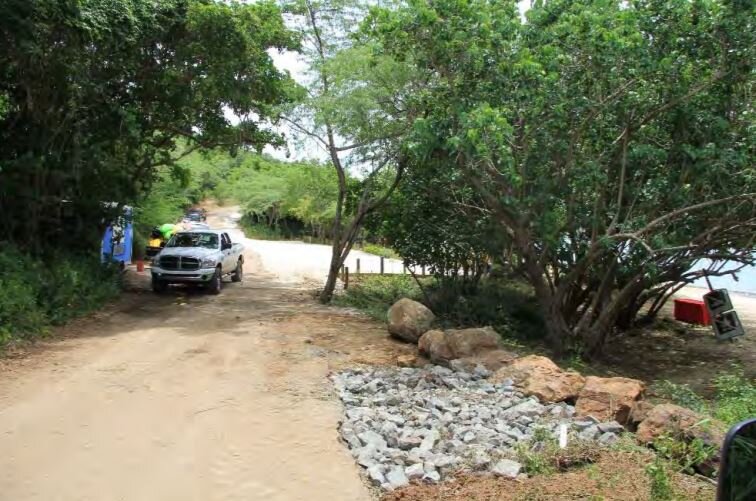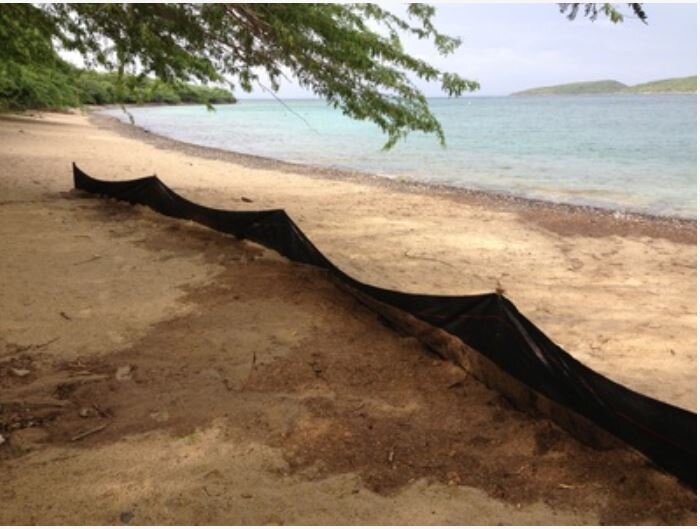Tamarindo Beach Restoration, Culebra, Puerto Rico
New growth as part of the beach restoration structure
Project Summary
This pilot project was conducted as part of current efforts to develop the Watershed Management Plan for Culebra. The project was done in partnership with the Department of Natural and Environmental Resources of Puerto Rico and forms part of the RED Sustainable Forest Initiative of the Forest Service Bureau. The goal is to mitigate the adverse effects of stormwater runoff, erosion, and sedimentation on coral reefs and other marine ecosystems. The project focused on the implementation of erosion and sedimentation control measures by redirecting and intercepting runoff, reforesting the site with native plants, and limiting access to this area by building two small boardwalks.
Problem
Stormwater runoff, erosion, and sedimentation have adverse effects on coral reefs and other marine ecosystems.
Solution
Erosion control measures are needed to limit, intercept, and redirect sediment runoff. Beach restoration can accomplish these objectives by planting native vegetation and redirecting foot traffic. These measures improve the health of the watershed.
Implementation
Ridge to Reefs worked in partnership with the Department of Environmental Resources of Puerto Rico and the RED Sustainable Forest Initiative. Natural erosion control was put in place by reforesting the upstream site with native plants. Reforestation and habitat restoration were also carried out through the rehabilitation of the dunes and the permanent vegetation line. Two small boardwalks were constructed to help limit impact on these areas of new growth. This pilot project was conducted as part of current efforts to develop the Watershed Management Plan for Culebra.
Outcomes
Constructing new parking areas, redesigning access roads, and restoring native vegetation will have a lasting mitigation of stormwater runoff, erosion, and sedimentation. These engineering efforts project the coral reefs and other marine ecosystems.
Funders and Partners Department of Environmental Resources of Puerto Rico


































